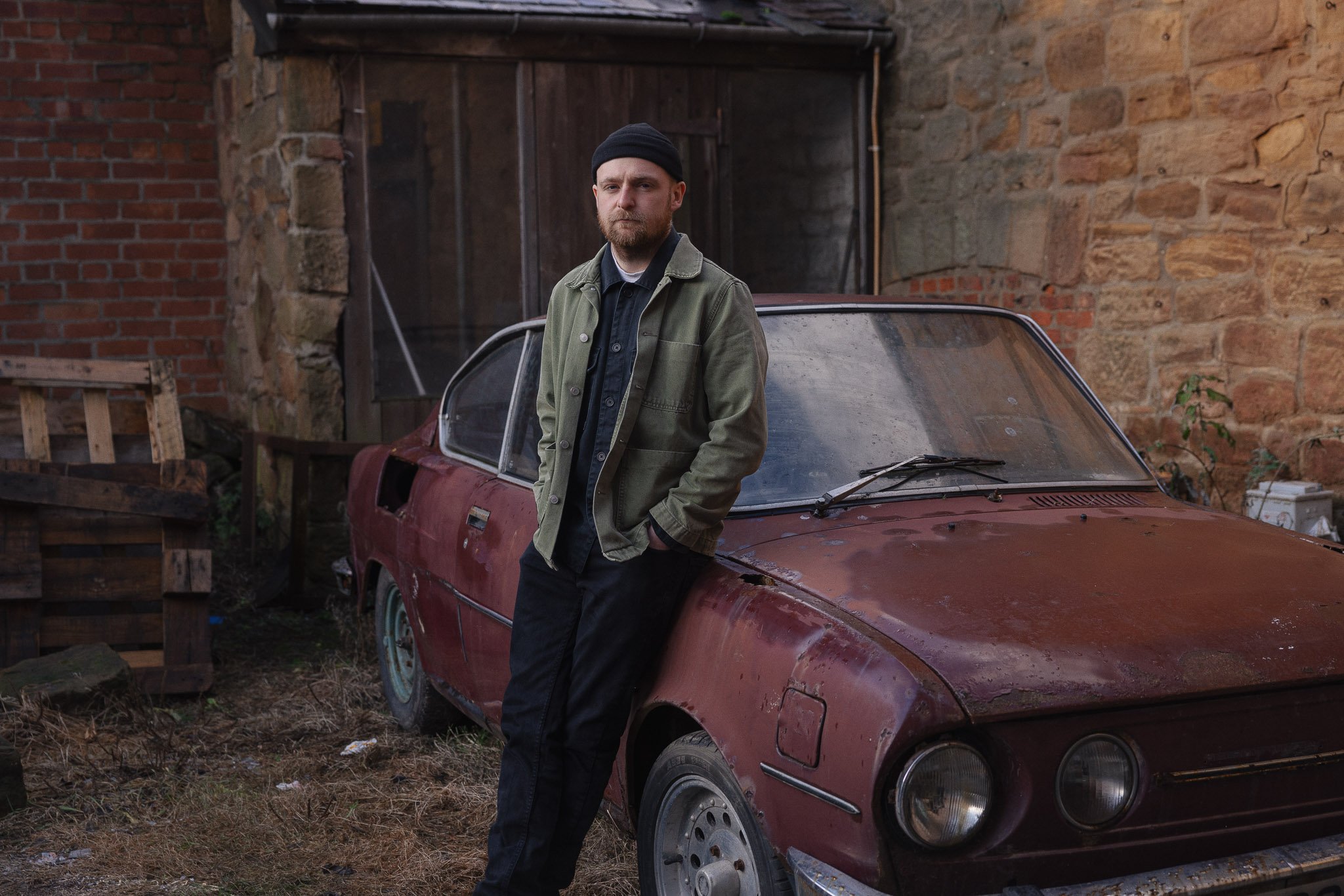“People should pay a lot more attention
to artists and poets than they do”
Aaron Duff
Hector Gannet
Songwriter and musician Aaron Duff often goes by Hector Gannet, a name drawn from his family’s history in the North Shields fishing industry. We talk to him about his music, regional identity, and what role artists and musicians can play in defining the future.
Interview by Arlen Pettitt
Photographs by Christopher Owens
It’s a Wednesday morning, and Aaron Duff meets me at the door of The Engine Room on Tanners’ Bank in North Shields. I drop my stuff and he takes me upstairs to sort me a coffee from The Wheel House, which he runs with his partner Leigh-Anne.
We’re very much on Aaron’s home turf, and as we walk back around the building you can smell the fish at 55°, the solvents from the tyre place, and you can hear the water between the sounds of forklifts ferrying pallets around.
As we settle back in he tells me about how Hector Gannet, the name his band and solo work goes under, came to be.
“I found this archive footage of North Shields,” he says. “It was of fishermen in a Tyne-Tees documentary that was made in the late 50s of trawlermen in Shields, and it had my grandparents in. It blew us away.”
“I’d never thought about them as being younger people, at work” Aaron continues. “It was a proper time capsule because there wasn’t an industry like that even by the time my dad was of age, he was discouraged from going into it. I was compelled to write some music to it, and that kickstarted Hector Gannet.”
The name came from a boat Duff’s grandad worked on, which went down in the 60s. His grandad was on it when it went down, but survived.
“I think artists, musicians and poets are very much more connected to what’s really happening than perhaps politicians or those in that realm who are appointed to represent people.”
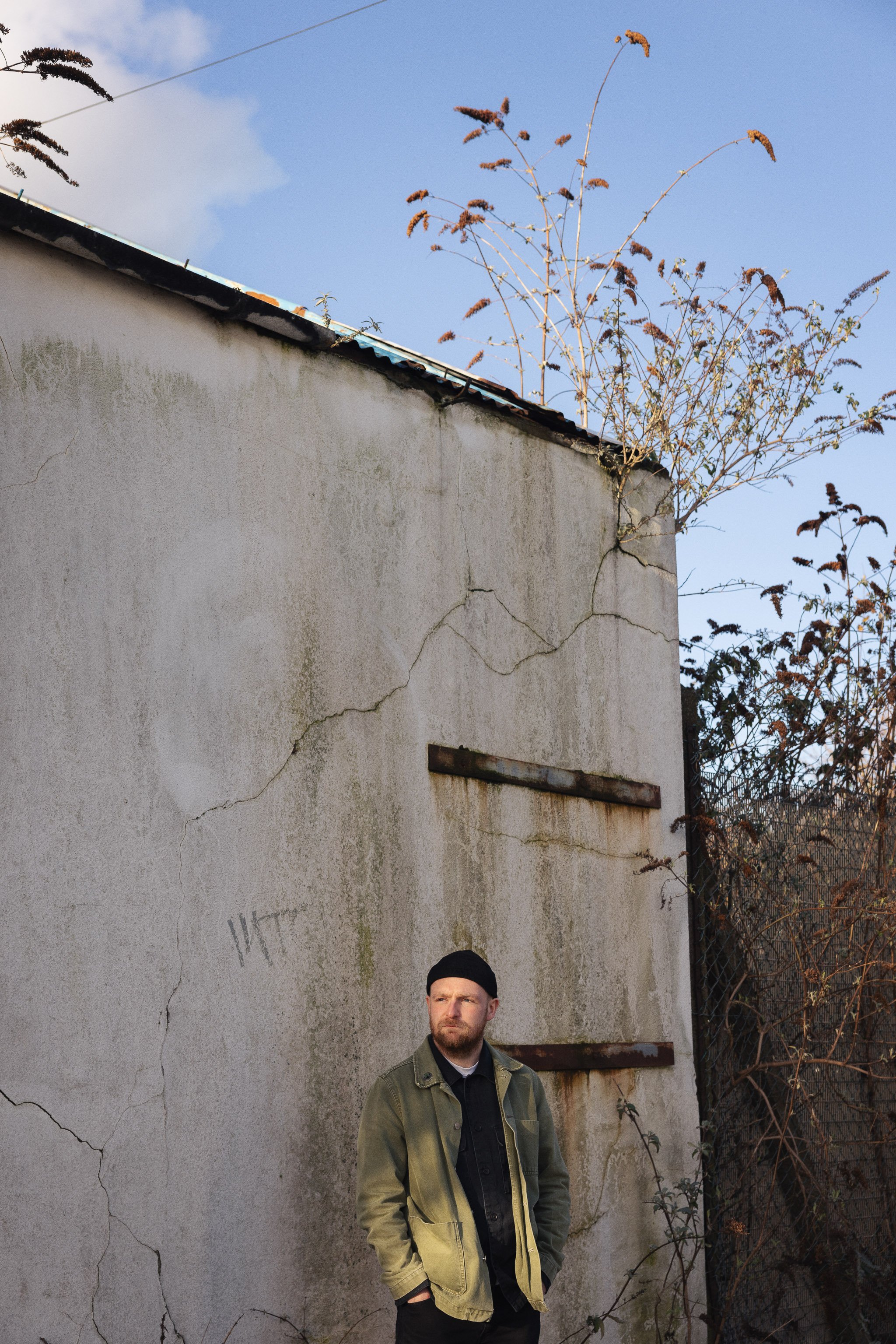
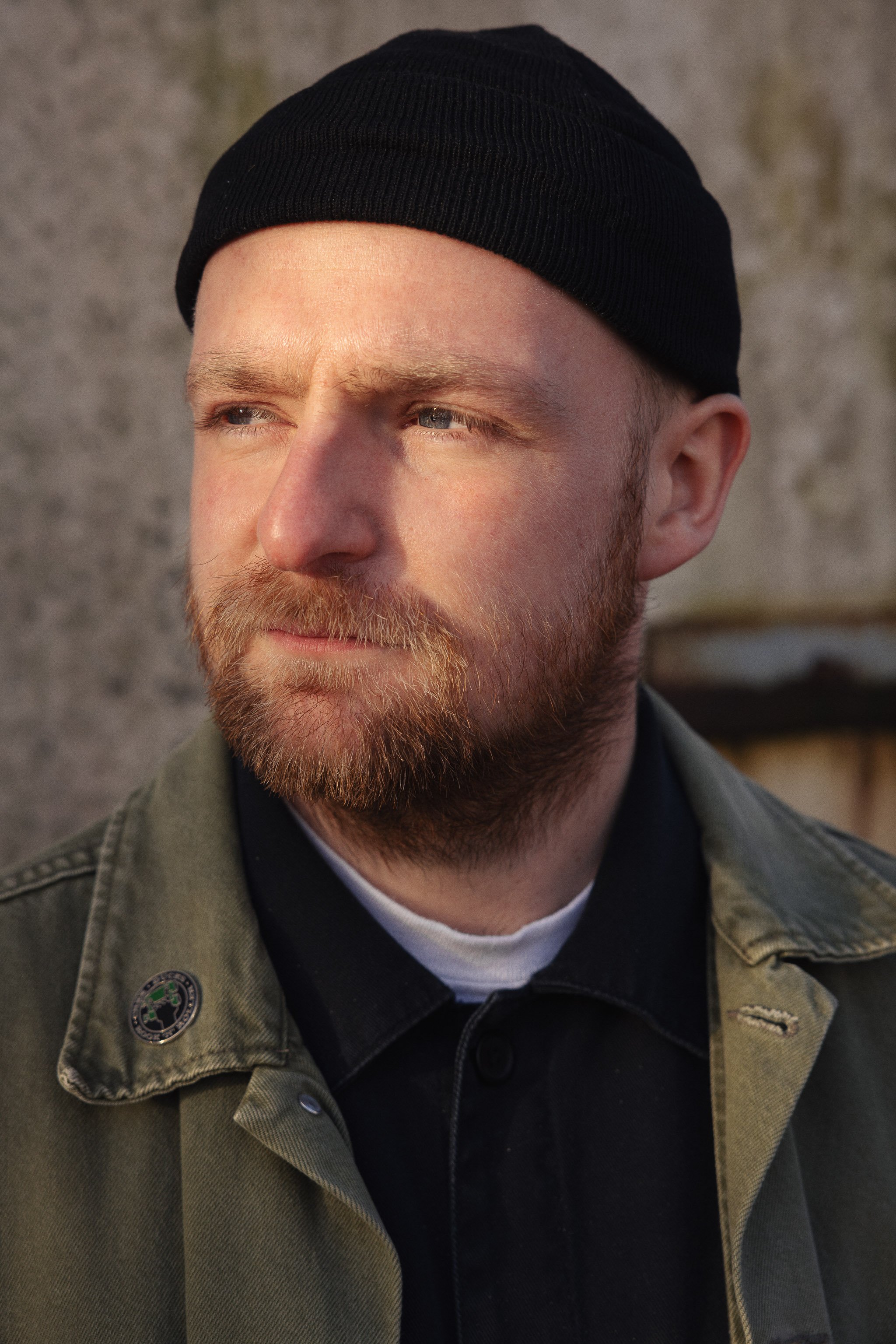
“The tale goes that he’d actually walked off the ship a few months earlier,” Aaron says. “The whole crew were fishermen from North Shields, but it was working as a support vessel for gas and oil rigs. The cook had fallen in after they’d been ashore - must’ve had a bit of drink or something - he jumped in to save him and they wouldn’t let him go home for a change of clothes, so he just walked off.”
“I suppose in those days it was a bit easier to get another job,” he continues, “just walk on another boat. But they came looking for him, he used to work in the engine room, and they said you can’t have your old job back but we’re short of people and you can work on the deck. And the guy who took his job in the engine room was killed in the accident. It was this fated thing.”
In common with many families in North Shields, each generation is filled with heroic tales of going to sea, at a time when almost everyone worked in the fishing industry or the shipyards.
But the found footage made it real for Duff, and the 45-minute soundtrack he composed for it meant he needed to get a band together. Hector Gannet now features Jack Coe on drums, Martin Wann on guitar, Joe Coady on bass and their producer Alex Blamire on keys and percussion.
I hesitate to describe their music, given at one point Aaron makes fun of all the labels they get given - folk, alt rock, indie. But, it’s safe to say is it’s very Northumbrian - Aaron sings in his accent and peppers his songs with familiar North East locations - and feels very current, while also having clear influences in the folk and folk rock of the 60s and 70s, including Lindisfarne and the songwriting of Duff’s idol Alan Hull.
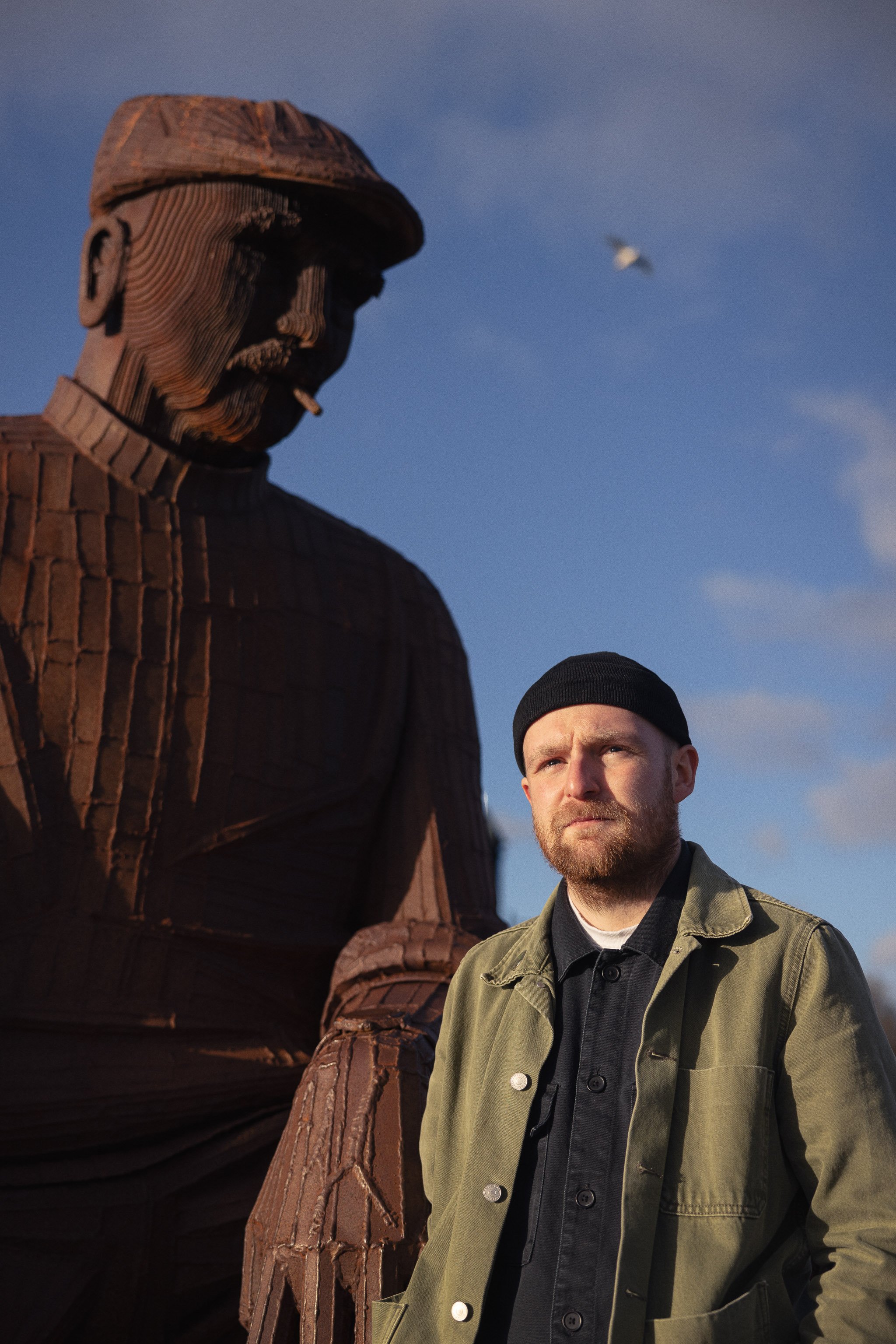
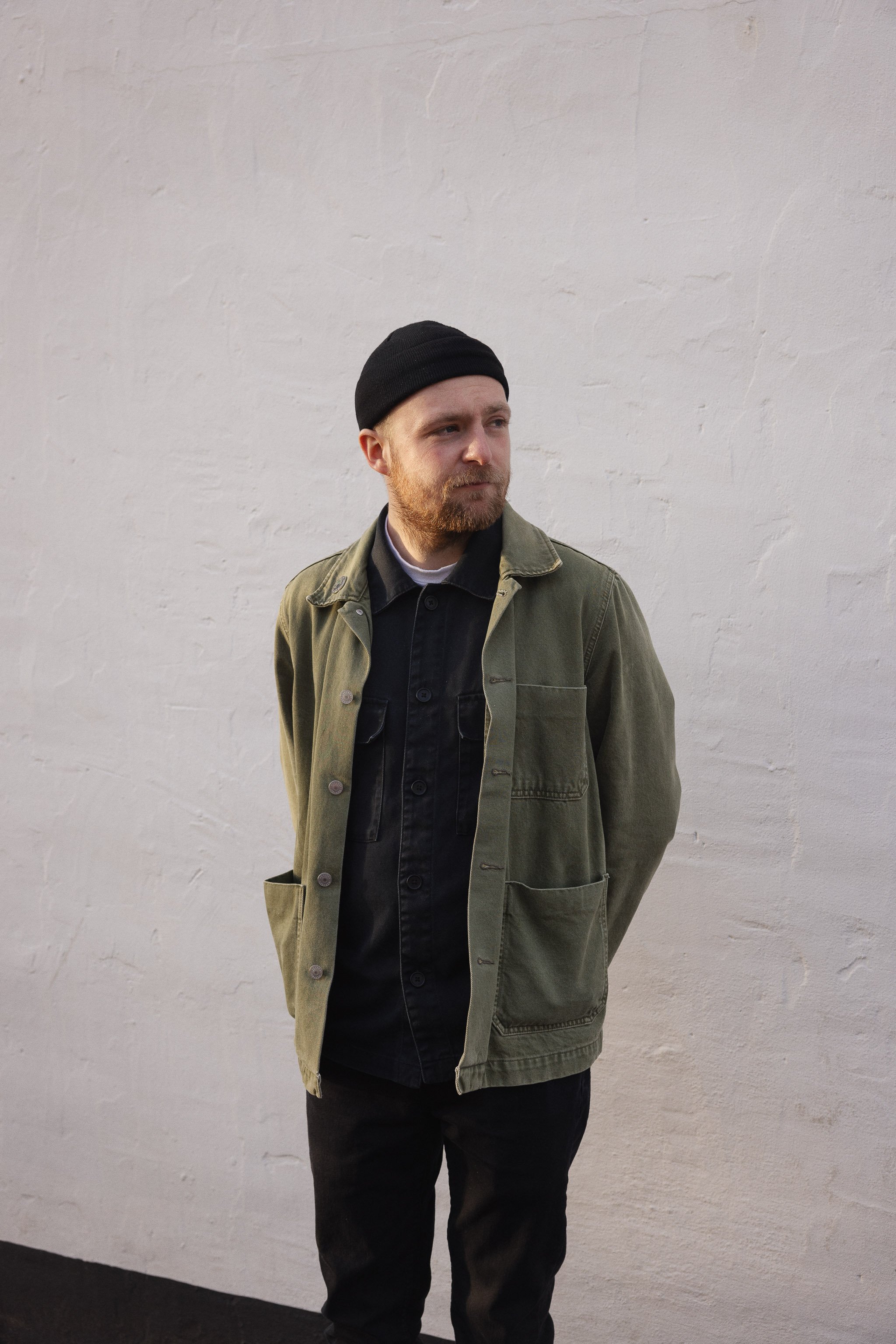
“The Shields I grew up in or the Shields of five years ago, it feels like a different place. People move to North Shields now, you know what I mean?”
Their first gig as a band was at a Sam Fender single launch at The Cluny, and Duff credits Fender - they went to school together, Fender a couple of years older - with lifting the perceptions of North Shields and its music.
“It’s not just us,” he says, “he’s taken local music with him everywhere he went. It has shone a massive spotlight on the area, it’s done wonders.”
“The Shields I grew up in,” he continues, “or the Shields of five years ago, it feels like a different place. People move to North Shields now, you know what I mean?”
On the wall of The Engine Room is the sign which once hung on the front of WM Wights, saved from scrap after the shop which had been on the Fish Quay for 90 years closed. Duff is quite pragmatic about the changes that are happening in the area, and remembering it while looking forward.
“It’s a celebration of the past,” he says, “but it’s never gonna be the future, you know? It’s about taking it with you and moving on to the next thing.”
“I’ve always been really proud of where I’m from,” he continues, “and it’s lovely to see it blossoming in the right direction. It’s becoming a real space for culture and art. That’s a massive thing, particularly in the current climate where the arts have been neglected massively by the government.”
Duff considers himself lucky to have had the support of teachers and his family through school, as he started leaning towards music, writing songs and playing in bands. He hopes the Fender effect will make that easier for people coming up now.
Hector Gannet had a front row seat to Fender’s rise, even playing at his St James’ Park gigs. After Sam called up and asked (“Fuck off, you’re joking right?”), it went into their shared band calendar months in advance as ‘Operation Shit Yourself’.
They were first on, as people were flooding in from the back, and Aaron was the first one at the microphone that day. He still can’t comprehend the size of it.
“When we were sound-checking, line-checking,” he says, “Jack was hitting the snare drum and I could hear it behind us and then it just took off round the fucking stadium and came back like half an hour later. The vastness of it.”
Duff speaks highly of Fender and his ability to carry the weight of success, as well as the way he draws other local musicians up with him.
There’s a wave of new music focused around Shields, with lots of it talking about life in the North East. I ask Aaron where he draws inspiration from.
“I’ve always been of the opinion that you should write what you know,” he says. “So, I’ve always done that, write about my surroundings and connect those to the wider picture. There is a locality thing because I’ve always just sung in my accent. I don’t try to hide that, I kind of feel like people appreciate that.”
“The artists I love, you can tell there’s no kind of put-ons,” Aaron says. “One of my heroes is Nev Clay, and I’ve never actually seen him play a song in its entirety because something will come into his mind as he’s singing it and he’ll just stop and have a chat with the audience. He could actually do the gig without singing, it would be just as lush to sit and hear him talking, about his experiences and his perception of the world. It’s totally rooted in where he’s from and his life, that’s the kind of stuff I love to delve into.”
“There are certain barriers there which can be broken down by art. It’s part of an artist’s job to do that.”
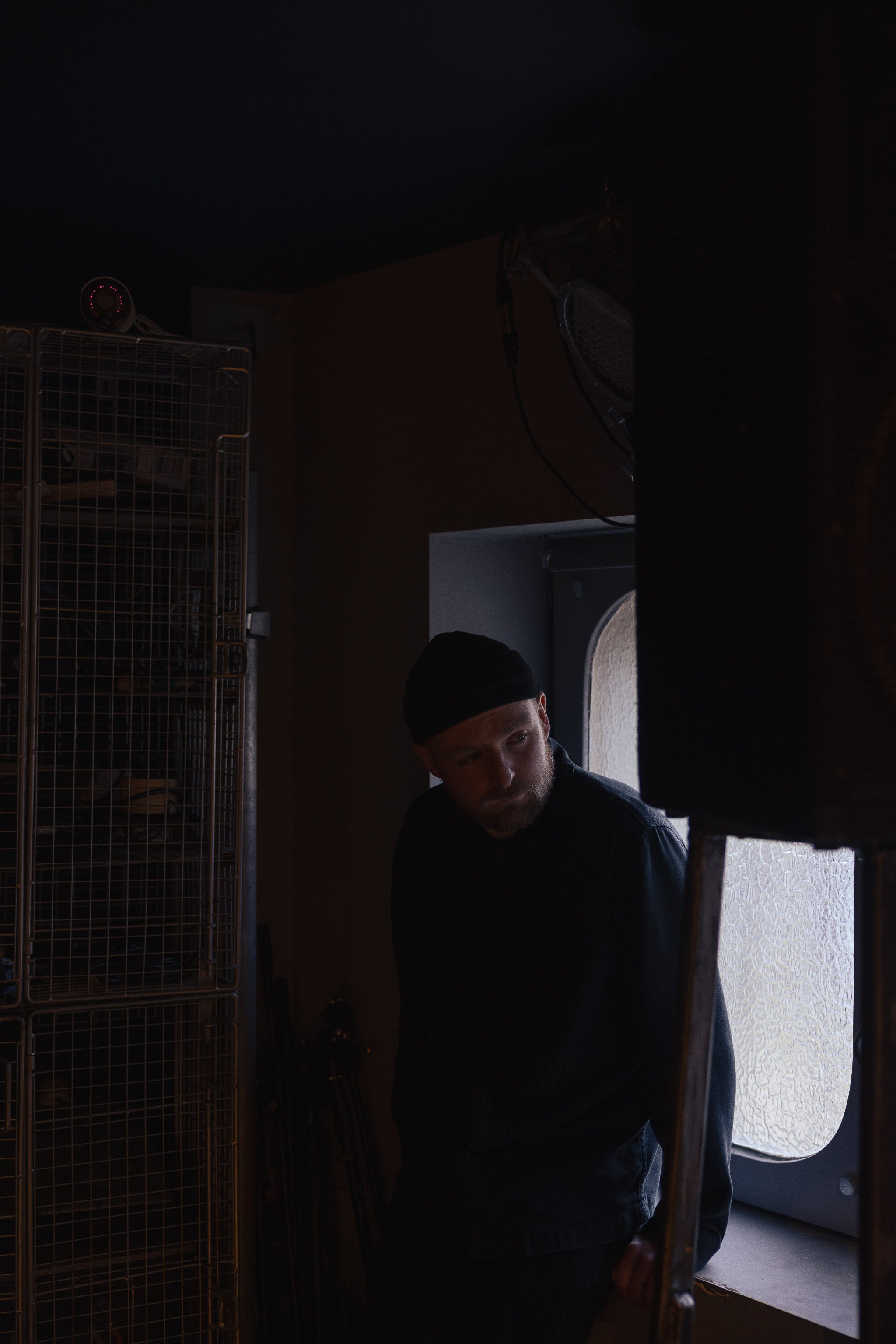
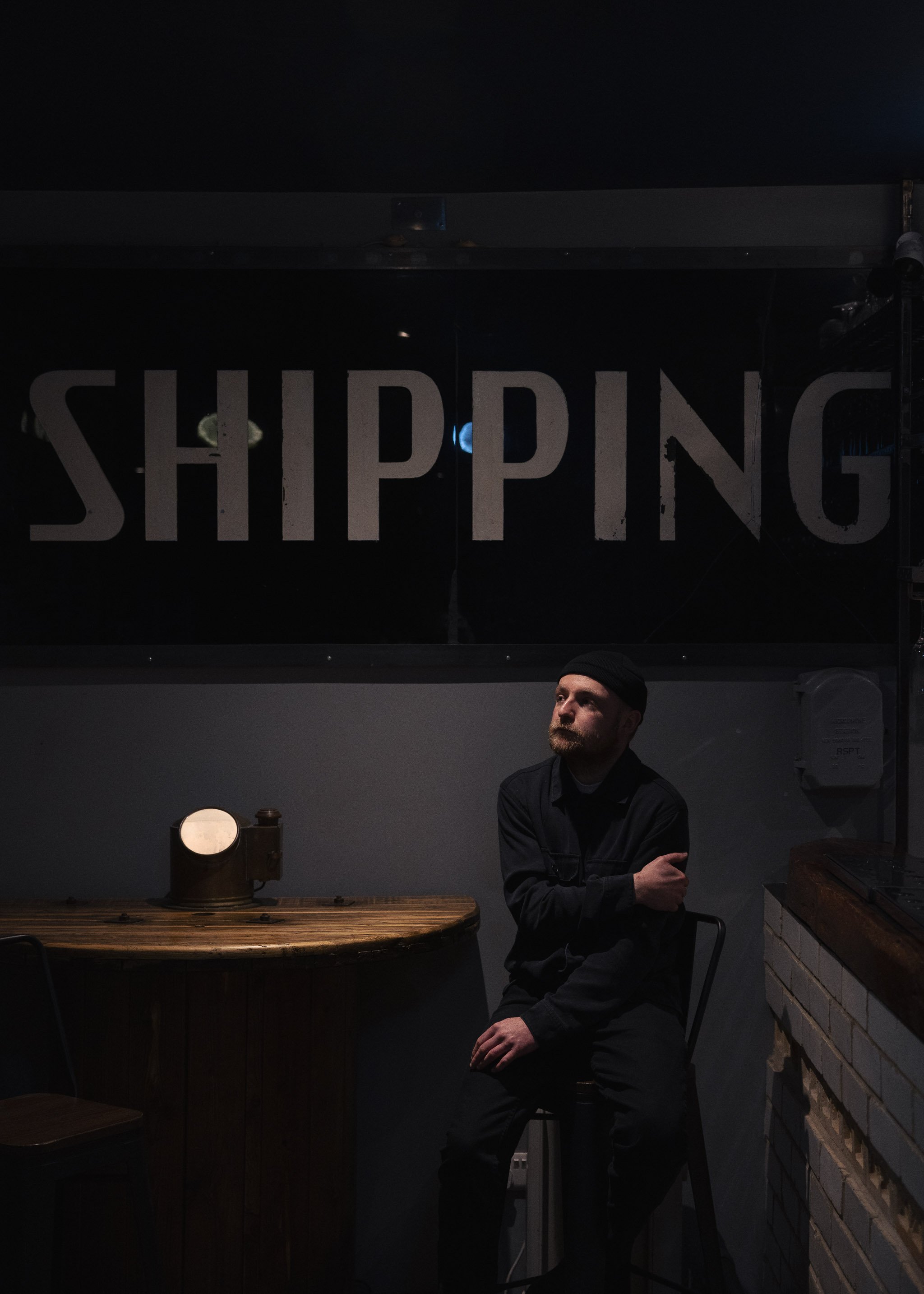
Songwriting sounds like it happens in a semi-conscious way for Duff, where only in hindsight can he sometimes tell where lyrics or topics have come from. He’s always on ‘receive’ he says, collecting ideas, thoughts and phrases.
“Songwriting is the process of pulling those things out of your head,” he says. “I get into this state, I haven’t spoken about it much - I’ve only recently started thinking about it properly - I could sit at the kitchen table with my guitar and I could play the same three chords for five hours.”
“Leigh’ll be coming in from work,” he continues, “and I’ll be “fuck, I haven’t done nowt”, but I’ve been sitting there trying. It probably is a process I’ve got to go through, you’re writing words or things will pop out when you’re playing.”
He recalls one occasion when he was forced to sit and write, during a songwriters retreat organised by Tom Robinson. The idea was to write 20 songs across 24 hours, but Aaron’s process meant he only managed one.
“He sat that far away from us,” Duff remembers, gesturing a few feet ahead, “and I had this exercise book with words written in and I didn’t look up the whole time, I could just see his foot on the floor tapping away. When I finished he went ‘FUCKING HELL!’”
The night before, when everyone was passing a guitar and singing covers, Aaron had struggled to work out what to play as it got closer and closer to his turn. In the end, he went for Fog on the Tyne.
Hearing the song he’d written the next day, Tom suggested Aaron might be the man to write the next anthem for the North East.
They’ve since shared a stage when Robinson played an intimate show at The Engine Room ahead of a full band gig with the Tom Robinson Band, both organised by Generator.
Robinson was a famously political musician, and I ask Duff what role he sees for music in defining the future of places like North Shields.
“People should pay a lot more attention to artists and poets than they do,” he says.
“I think artists, musicians and poets are very much more connected to what’s really happening than perhaps politicians or those in that realm who are appointed to represent people,” Duff continues. “There are certain barriers there which can be broken down by art. It’s part of an artist’s job to do that.”
Duff explains how he got a lot of his politics from music, and mentions the formative experience of listening to Joe Strummer and The Clash, and his ability to connect with what was written in those songs, recognising the situations and the types of people.
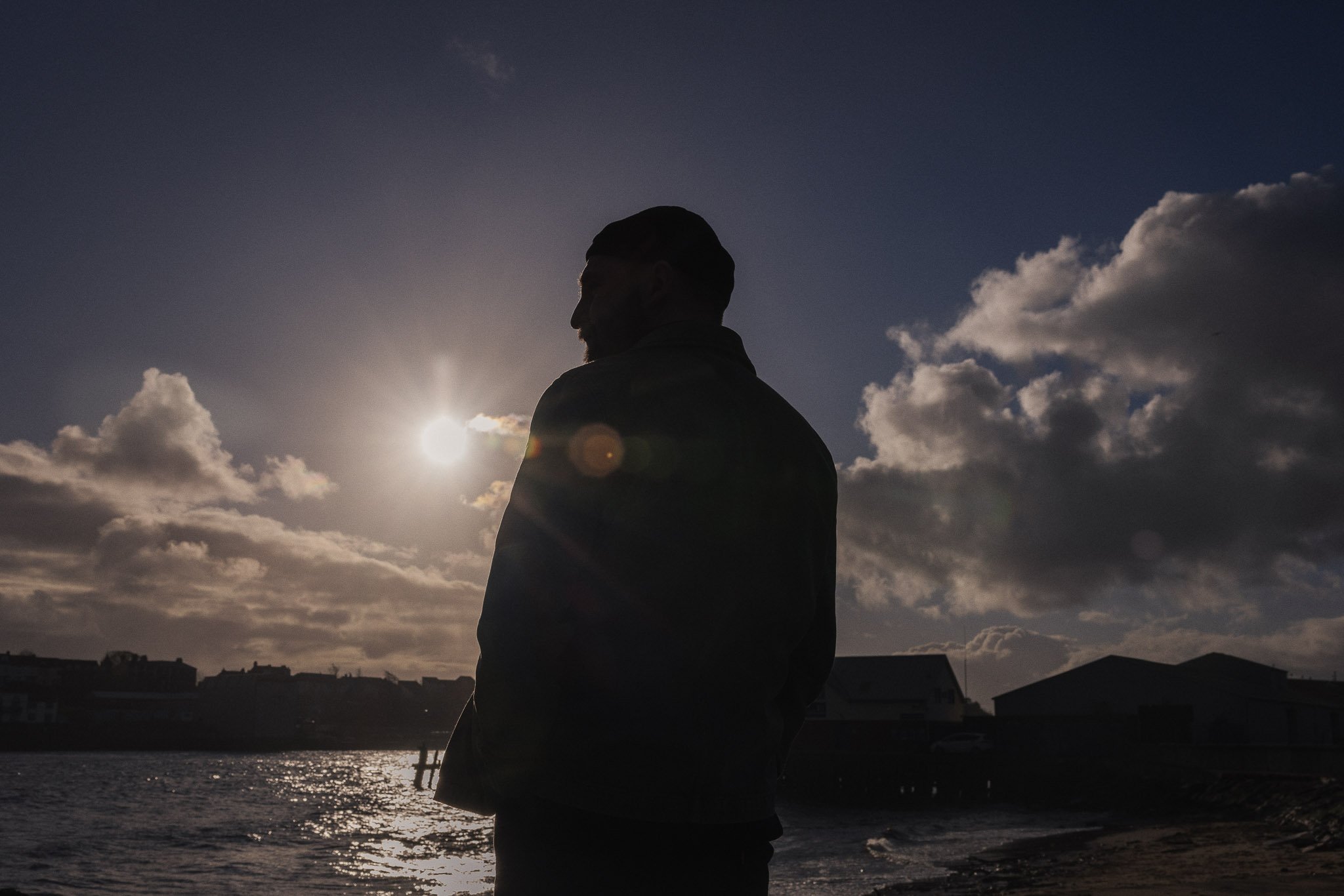
“She said ‘Can I ask you how often you think about the Roman Empire?’, and I said ‘Probably quite often, actually’. But, Segadunum’s up the road, you know what I mean?”
Connection and interpretation are important to music, and that’s something Aaron is conscious of.
“There’s an older woman who comes into the coffee shop every morning,” he says, “but she’s started coming to watch the band now. She’d never been to anything like that before, so she was totally out of her comfort zone, but for whatever reason she’s right into it now.”
“We put a song out recently called The Minute Hand,” he continues. “She came in and she had read the lyrics and said it was one of the best pieces of writing about grief that she’d ever read. That was amazing, I didn’t even really think it was about grief, but maybe it’s her experience that’s put that in.”
Aaron enjoys meeting those who have connected with his music, saying it means they always share a point of reference around Shields, or the North East, or something that’s drawn them to the music.
There’s a community building around the band, and towards the end of last year Hector Gannet played a headline show at the Playhouse in Whitley Bay, drawing a crowd of around 600.
“It’s a lush, varied group of people who come to see us,” he says. “Someone got in touch and said ‘I’m bringing the kids to see you!’ That’s mad, isn’t it?”
“At those big gigs,” he says of the Playhouse show, “you always get a security thing at the start when they ask what sort of crowd are coming, what to expect, whether there’ll be any bother. It’s just normal people to me, they just turn up and enjoy the music and have a drink!”
We talk about local pride, as part of the draw with Hector Gannet is, I suspect, that people like to see one of their own doing well.
In the North East, lots of that pride is backwards facing, something Duff is keen to challenge with a view of the now and the future.
“I found the heritage a massive source of inspiration,” Aaron says, “but it’s always been about how it translates to now and how it’s affecting the present. Everybody moves forward. What’s next, you know?”
“It all comes down to education,” he continues, “when people are mis-informed, or just uneducated on what’s happened in the past. You have to know what’s happened to know what to do and what not to do in the future.”
He sees it as a balancing act between celebrating the past, but not romanticising it or using it as a reason to prevent moving forwards.
This debate exists in a microcosm on the Fish Quay, a place that is constantly evolving, creating many a discussion on the Fish Quay Opinions Facebook Group (“...and it is an opinionated fucking group…”) which tend to boil down to the idea that it was all better back then. It wasn’t, Duff thinks, in fact life was probably really quite hard.
It’s a debate he’s got a stake in, both as someone running a business on the Fish Quay and someone who writes and sings songs about the region.
“You have to celebrate certain things and understand why certain things don’t exist now,” he explains. “There might still be a fishing industry here if it hadn’t been completely overfished through the greed of humanity. Members of my family do stuff with the Fishermen's Heritage Project, they’ll raise money and go into schools, because it’s the kid’s family history too. But ultimately, it all has to be about the next thing, you can’t just live in the past. It’s a fine line, but people get really upset.”
“Shields has got this identity because of its past,” he says, “and when that isn’t there, there’s a sense of loss but also this lack of purpose for certain people. I think that’s why people cling to the past. That sort of pride. It’s a hugely emotive thing.”
A summary of how all this fits together comes in the unlikely guise of a meme.
“This woman came into the coffee shop,” Aaron recalls, “and she said ‘Can I ask you how often do you think about the Roman Empire?’, and I said ‘Probably quite often, actually’. But, Segadunum’s up the road, you know what I mean?”
“I asked my brother in law the same question,” he continues, “he’s a tradesman and works on building sites and he said ‘I don’t’. I wondered if it was because he’s so happy in his life. He goes to work, he’s got the bairn, he has a few pints of an evening. I wish I was that settled, and my head wasn’t always so preoccupied.”
He remembers a trip to Cumbria, which included a visit to the site of a Roman fort, and how interesting he finds walking amongst the history.
“I want to touch the stones,” he concludes. “Someone put those down two thousand years ago and they’re still there. You can see the marks of the chisels.”
In fact, that’s probably a good description of his music and of Hector Gannet - it’s here now, but you can see the chisel marks.
Learn More



